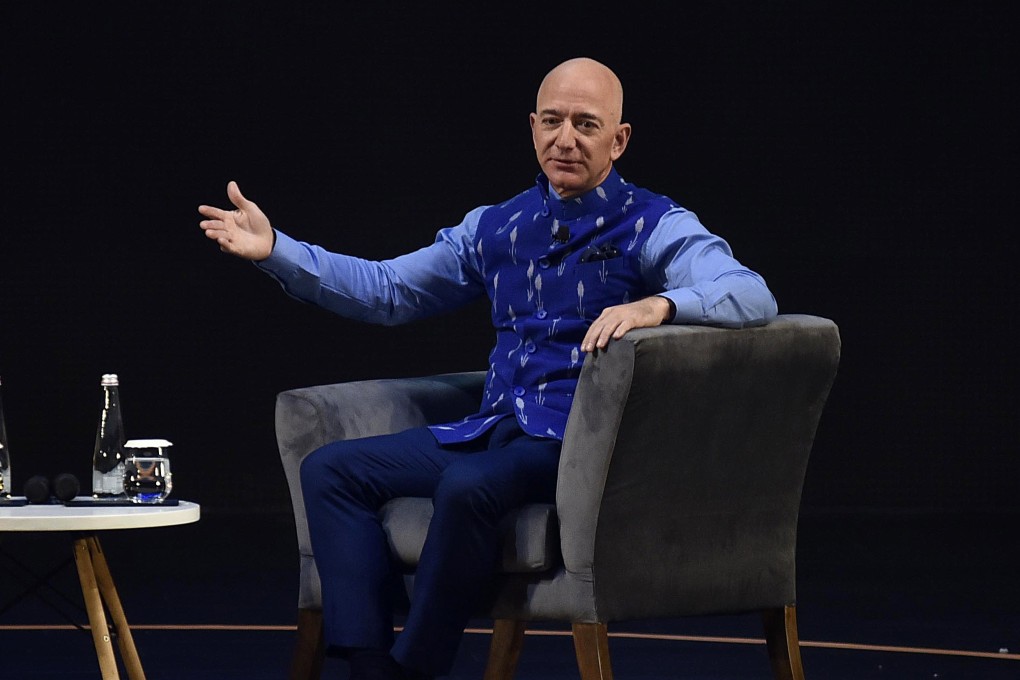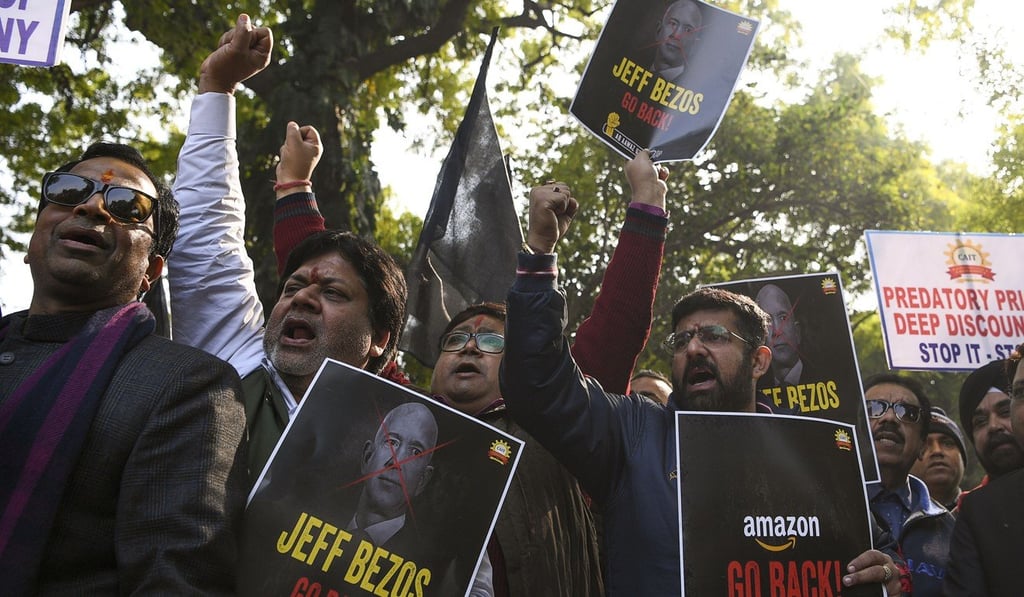What’s behind India’s new-found animosity towards Amazon?
- The US retail giant holds an imposing share of the world’s fastest-growing e-commerce market, second only to Walmart-owned Flipkart
- But allegations of anticompetitive practices have now sparked an investigation by the country’s antitrust regulator

But just hours before Bezos was supposed to land, an investigation was launched by the country’s antitrust regulator – the competition commission of India (CCI) – amid allegations Amazon and its Indian home-grown rival Flipkart were engaging in anticompetitive behaviour.

Midway through the trip, India’s Commerce Minister Piyush Goyal alleged that Amazon was indulging in “predatory prices or some unfair trade practices” and that it “it is not as if they are doing a favour to India when they invest a billion dollars” if that money is used to take business away from Indian companies.
Bezos’ trip might have concluded, but the dust it kicked up is yet to settle: his company is under investigation and the Indian government appears increasingly hostile.